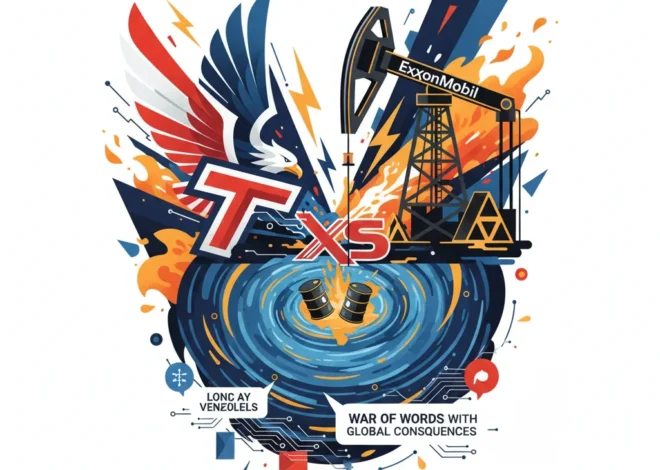
LNG Titans at War: Venture Global Accuses Shell of a “Campaign of Sabotage”
A High-Stakes Battle in the Global Energy Arena
In the cutthroat world of global energy, where fortunes are made and lost on the tides of supply and demand, a bitter feud has erupted between a rising American star and a European titan. US liquefied natural gas (LNG) producer Venture Global has publicly accused energy supermajor Shell of orchestrating a malicious “campaign” to damage its business and sabotage its future growth. This isn’t just another corporate disagreement; it’s a multi-billion-dollar conflict that strikes at the heart of contract law, market ethics, and the future of global energy security.
The accusation, laid out in a letter to US members of Congress, escalates a long-simmering rivalry into a full-blown war of words. Venture Global claims Shell is leveraging its immense influence to undermine its rival’s ability to secure the critical finance needed for expansion. At the center of this storm is Venture Global’s Calcasieu Pass facility in Louisiana, a plant that has become a symbol of both immense profitability and profound controversy.
The Core of the Conflict: Contractual Obligations vs. Market Opportunity
The dispute hinges on a fundamental disagreement over contractual timing and technical definitions. In 2022, as Russia’s invasion of Ukraine sent European energy prices soaring, the global LNG market became a gold rush. Venture Global’s Calcasieu Pass plant came online at the perfect moment, ready to supply a desperate market. However, it did so under a cloud of contention.
Venture Global has maintained that despite producing and selling LNG, the plant remains in a “commissioning” phase due to technical issues, primarily with its power generation systems. This legal designation, they argue, means their long-term supply contracts with partners like Shell, BP, Edison, and Repsol have not yet officially commenced. This has allowed Venture Global to sell its LNG on the far more lucrative spot market, where prices were at historic highs. The numbers are staggering; the company has reportedly sold over 200 cargoes, reaping an estimated $18 billion in revenue.
Naturally, their long-term partners see things differently. They argue that a plant producing and shipping hundreds of cargoes is, for all practical purposes, operational. They accuse Venture Global of exploiting a contractual loophole to renege on its commitments and chase windfall profits, leaving them without the gas they were promised. This has led them to file for international arbitration, seeking billions in damages.
To clarify the opposing views, here is a breakdown of each side’s position:
| Argument | Venture Global’s Position | Shell & Partners’ Position |
|---|---|---|
| Plant Status | Still in “commissioning” due to technical issues, exempting it from long-term contract obligations. | Effectively operational, as evidenced by over 200 spot market sales. The “commissioning” claim is a pretext. |
| Spot Market Sales | Permissible during the commissioning phase to test systems and generate early revenue. | A direct breach of the spirit and letter of their agreements. LNG produced should fulfill contracts first. |
| Legal Action | The arbitration cases are “meritless” and part of a campaign to damage its reputation. | Necessary legal recourse to enforce contracts and recover damages from lost supply. |
From Arbitration to Allegations of Sabotage
Venture Global’s recent letter to Congress dramatically raises the stakes. The company alleges that Shell’s actions go beyond a simple contract dispute. According to Venture Global CEO Michael Sabel, Shell is waging a “meritless global campaign” designed to harm its reputation with the very financial institutions it needs to fund its next wave of ambitious projects, including the massive Plaquemines and CP2 LNG facilities. These projects require tens of billions of dollars in project finance, and any perceived instability or untrustworthiness could make securing that capital from the global banking sector significantly more difficult and expensive.
The letter claims Shell’s true motive is “to stifle the growth of a disruptive competitor” (source). This paints a picture of a legacy giant attempting to muscle out a nimble, fast-growing rival that threatens its market position. By casting doubt on Venture Global’s reliability, Shell could theoretically scare away investors and lenders, thereby slowing down the arrival of new LNG supply to the market and keeping prices higher for longer.
The Wider Implications for the LNG Market and Global Economy
This dispute is more than just an internal industry squabble; it has profound implications for the entire energy landscape. The global LNG market is built on a foundation of long-term contracts, which are the bedrock of project financing. Producers use these 15-20 year agreements to prove to banks and investors that they have a stable, guaranteed revenue stream, allowing them to secure the billions needed for construction.
The Venture Global case challenges this model. If a producer can delay long-term commitments to capitalize on short-term price spikes, it introduces a new level of risk and uncertainty into the market. This could lead to several downstream consequences:
- Higher Financing Costs: Lenders in the banking sector may demand stricter terms or higher interest rates for future LNG projects to compensate for this newly highlighted “commissioning risk.”
– Contractual Scrutiny: Buyers will likely demand iron-clad, unambiguous language in future contracts defining exactly when commercial operations begin, leaving no room for interpretation.
– Impact on Energy Security: For nations, particularly in Europe and Asia, that rely on LNG for their energy security, the reliability of these contracts is non-negotiable. A breakdown in trust could destabilize supply chains.
The case also shines a light on the inherent tension between market stability and speculative profit. While this dispute doesn’t directly involve emerging financial technology like blockchain, it underscores the need for greater transparency and immutable verification in complex supply chains—a problem that such technologies aim to solve. The integrity of the entire energy trading ecosystem relies on the belief that a contract is a contract.
Who Are the Key Players and What Do They Stand to Lose?
This is a high-stakes game with multiple powerful players, each with a significant amount on the line. The outcome of the arbitration and the court of public opinion will have lasting effects on their bottom lines and strategic futures. The dispute has drawn in some of the biggest names in energy, a fact noted by industry analysts who point out that Venture Global has managed to “fall out with almost all its foundation customers at its first project” (source).
Here’s a look at the main parties and their stakes in this complex conflict:
| Player | Primary Interest | What’s at Stake |
|---|---|---|
| Venture Global LNG | Securing financing for future projects (Plaquemines, CP2) and maximizing current profits. | Billions in future investment, long-term market reputation, and potentially billions in arbitration damages. |
| Shell | Enforcing its contract, securing its contracted LNG supply for trading and delivery. | Lost profits from missed LNG cargoes, the precedent for future contracts, and its reputation as an industry leader. |
| BP, Edison, Repsol | Similar to Shell: enforcing contracts and securing their share of the LNG supply. | Significant financial losses and disruptions to their energy supply and trading operations. |
| The Financial Sector | Assessing risk and ensuring the bankability of future multi-billion dollar energy projects. | The stability of project finance models; accurately pricing risk in long-term energy investments. |
The AI Paradox: How Technology Can Restore the Human Touch to Recruitment and Drive Economic Growth
Conclusion: A Defining Moment for the Future of Energy Contracts
The escalating war between Venture Global and Shell is a landmark case for the modern energy era. It encapsulates the immense pressures and temptations of a volatile market and forces a referendum on the sanctity of long-term contracts. Whether Venture Global’s accusations of a coordinated “campaign” are a legitimate defense or a strategic smokescreen remains to be seen as the arbitration proceedings unfold.
For investors, finance professionals, and business leaders, this dispute is a critical case study in risk management, corporate strategy, and the powerful interplay between legal contracts and market forces. The resolution will not only determine the fate of billions of dollars but will also shape the rules of engagement in the global LNG market for the next decade. As the world navigates a complex energy transition, the one currency that remains indispensable is trust. Right now, in the Gulf of Mexico, that currency is being put to the ultimate test.


